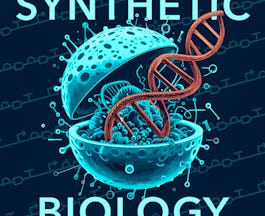Filter by
The language used throughout the course, in both instruction and assessments.
58 results for "molecular biology"
 Status: Free
Status: FreePeking University
 Status: Free
Status: FreeUniversity of Colorado Boulder
 Status: Free
Status: FreeAmerican Museum of Natural History
Skills you'll gain: Epidemiology
 Status: Free
Status: FreeGeorgia Institute of Technology
 Status: Free
Status: FreeAmerican Museum of Natural History

University of California, Irvine

Duke University
 Status: Free
Status: FreeLudwig-Maximilians-Universität München (LMU)
 Status: Free
Status: FreeCarnegie Mellon University
 Status: Free
Status: FreeUniversity of Copenhagen
 Status: Free
Status: FreeUniversitat de Barcelona

Universidad Nacional Autónoma de México
In summary, here are 10 of our most popular molecular biology courses
- Advanced Neurobiology II: Peking University
- Engineering Genetic Circuits: Design: University of Colorado Boulder
- Virology and Epidemiology in the Time of COVID-19: American Museum of Natural History
- Material Behavior: Georgia Institute of Technology
- Genetics and Society: A Course for Educators: American Museum of Natural History
- Extracellular Vesicles in Health and Disease: University of California, Irvine
- The Brain and Space: Duke University
- Circadian clocks: how rhythms structure life: Ludwig-Maximilians-Universität München (LMU)
- Statistical Thermodynamics: Molecules to Machines: Carnegie Mellon University
- Origins - Formation of the Universe, Solar System, Earth and Life: University of Copenhagen










